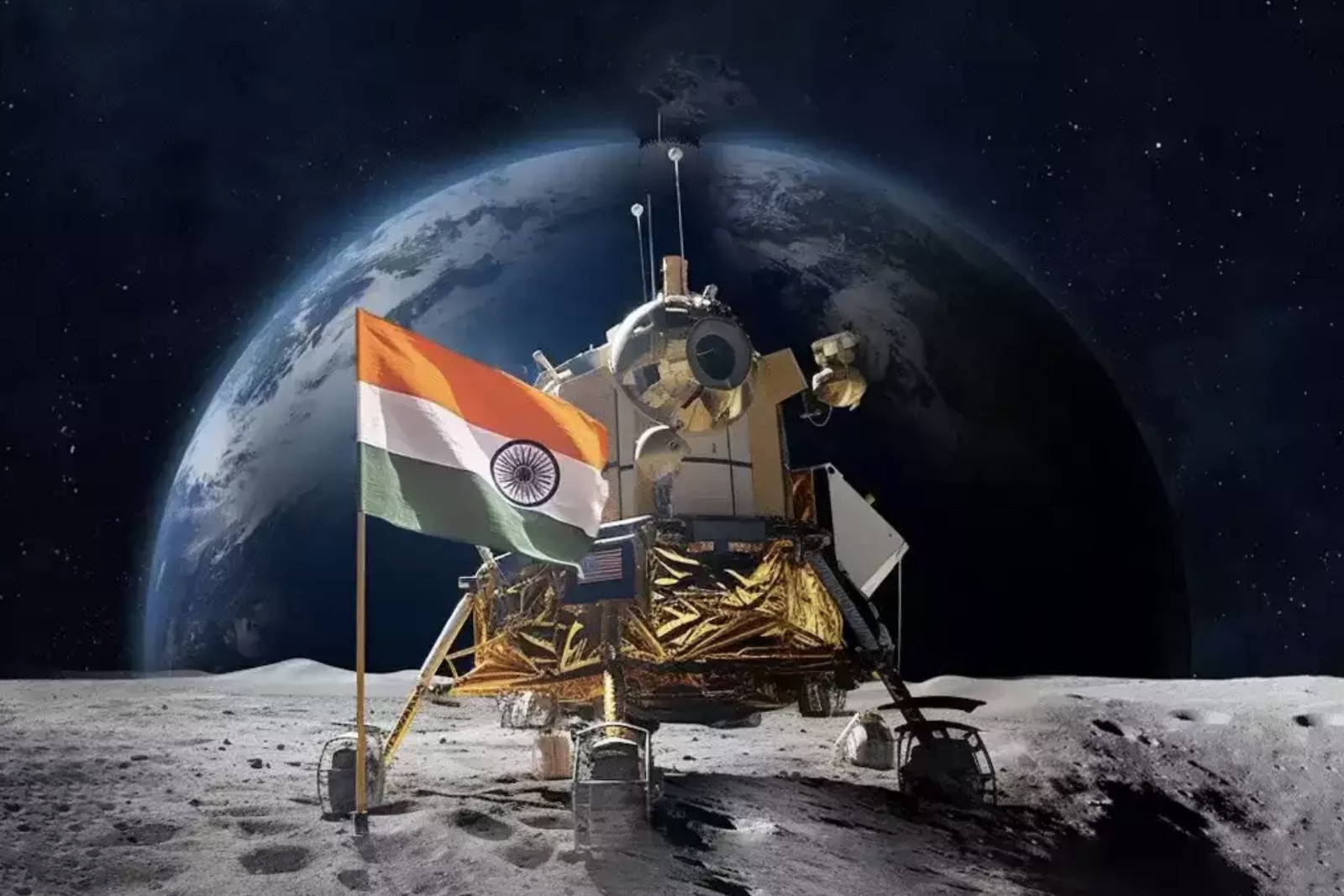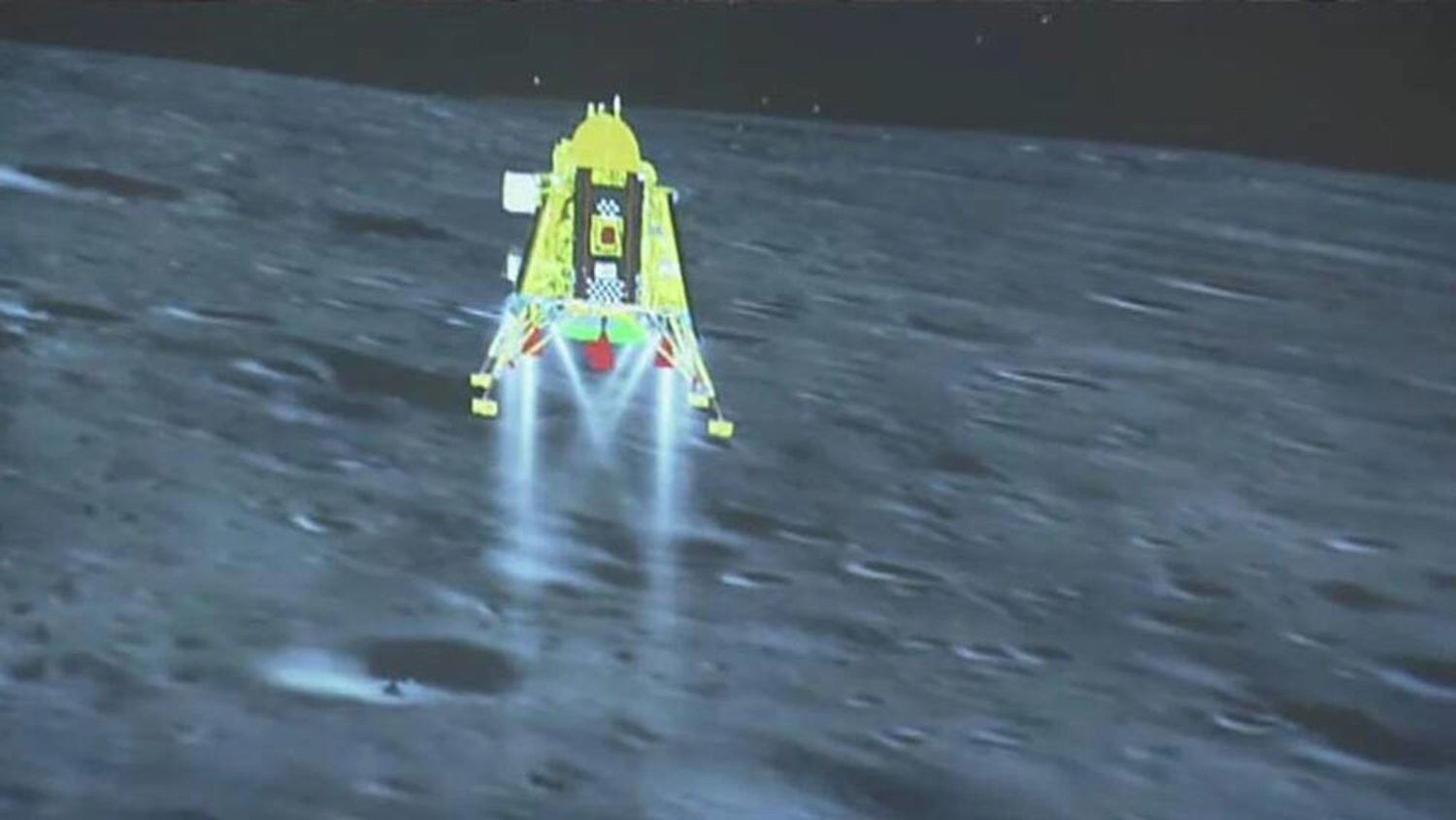India's Ambitious Space Program: Aiming for a $44 Billion Economy
India's space ambitions are soaring, following the success of the Chandrayaan-3 mission in August 2023, which marked the country's arrival as a leading player in the global space race. The successful landing of Chandrayaan-3 near the unexplored south pole of the Moon not only catapulted India into a select group of spacefaring nations but also ignited a new wave of ambition and investment in the country's space sector.
While India has long been a significant player in space, with its own national space agency, the Indian Space Research Organisation (ISRO), accounting for just 2% of the global space economy in 2023, valued at $630 billion according to a World Economic Forum report, the Indian government has set its sights on a much larger prize.
The government has declared its goal of becoming a $44 billion space economy by 2033, capturing 8% of the global market and exporting $11 billion in space products. This ambitious target will require a significant shift in the country's space sector, and the government is already taking steps to make it happen.
A New Era of Private Sector Involvement
Historically, until the early 1990s, ISRO dominated India's space industry. The involvement of private companies was limited to building according to ISRO's specifications and plans. However, the Indian government initiated reforms in the space domain in 2020 to create a more inclusive and competitive environment for the private sector.
The Indian Space Policy – 2023 has been formulated as a comprehensive framework to implement these reforms. The policy aims to enhance space capabilities and foster a thriving commercial presence in space, leveraging it as a catalyst for technology development.
To facilitate greater private sector participation, several distinct entities have been established under the policy:
In-SPACe: The Single Point of Contact for Space Activities
The National Space Promotion and Authorisation Centre (In-SPACe) serves as the pivotal agency, providing a single point of contact for clearance and authorization across various space activities. These include constructing launch pads, procuring and trading satellites, and facilitating the exchange of high-resolution data.
In-SPACe acts as both a regulator and a promoter, issuing guidance on liability matters while fostering the establishment of industry clusters. It also notified the Norms, Guidelines and Procedures for Implementation of Indian Space Policy-2023 in respect of Authorization of Space Activities in May 2024.
NSIL: Commercializing ISRO Technologies
NewSpace India Limited (NSIL) was established in 2019 to oversee the manufacturing, leasing, or procurement of space-related components, technologies, platforms, and other assets from the public and private sectors. NSIL is also responsible for commercialising space technologies and platforms that have been developed with public funds.
The Department of Space: Coordinating International Cooperation
The Department of Space aims to provide general policy guidelines, act as the central department for implementing space technology, and establish an effective system for resolving conflicts arising from space activities. It also coordinates international cooperation in global space governance and programs alongside the Ministry of External Affairs.
FDI Policy: Opening Up to Foreign Investment
Amendments concerning FDI now permit 100% FDI in the space sector, aimed at attracting foreign investors. Entry routes are significantly liberalised, allowing for varying percentages under different categories:
| No. | Activities | Percentage for Automatic Route | Percentage for Government Route |
|---|---|---|---|
| 1 | Manufacturing of components and systems/subsystems for satellites, ground segments, and user segments. | Up to 100% | |
| 2 | Satellites – manufacturing and operation, satellite data products, ground segments, and user segments. | Up to 74% | Beyond 74% |
| 3 | Launch vehicles and associated systems or subsystems, and the creation of spaceports for launching and receiving spacecraft. | Up to 49% | Beyond 49% |
Growing Space Economy
The Indian government foresees a growing synergy between research, academia, start-ups, and industry. It has set up the Anusandhan National Research Foundation (ANRF) to promote the public-private partnership (PPP) model in scientific research. The ANRF budget envisions a funding of Rs 50,000 crores or about US$6 billion over five years, out of which about 60-70% is to come from non-government sources.
The ANRF aims to provide a strategic direction to scientific research as envisaged in the National Education Policy 2020.
Challenges and Opportunities for Private Sector Players
While India has a growing space economy, it still faces some challenges. The number of operating satellites in India is significantly lower than in countries like the US and China, and funding for space technology start-ups remains relatively low. However, the government's ambitious plans and the opening up of the space sector to private investment have created a wealth of opportunities for private sector players.
Private entities have the potential to meet demand from the defence sector in areas such as remote sensing, electronics intelligence, global navigation, and communication. They can also play a vital role in meeting civil government requirements, such as weather predictions and environmental monitoring.
The Gaganyaan Mission: A Key Milestone
One of India's most ambitious projects is the Gaganyaan mission. The mission aims to launch a three-member crew to an orbit of 400 km for a three-day mission and bring them back safely to Earth by landing in Indian sea waters.
This project, under the aegis of ISRO, will require significant private sector involvement, particularly in areas such as crew training, life support systems, and space station development. The Gaganyaan mission, along with the country's other space ambitions, is a testament to India's commitment to becoming a leading player in the global space economy.
The Future of India's Space Sector
With its ambitious plans, liberalised FDI regime, and a growing space economy, India is well-positioned to become a major player in the global space sector. The government's commitment to fostering a thriving commercial presence in space, alongside its efforts to attract private and foreign investment, will play a key role in achieving this goal. As India's space program continues to advance, the country is poised to play a defining role in the future of space exploration.
India's Space Industry: A Giant Leap for Mankind
India's journey to becoming a space powerhouse is a story of ambition, innovation, and collaboration. From its modest beginnings to its current ambitious goals, the country's space sector has come a long way. The government's reforms, the influx of private investment, and the growing number of space technology startups are all signs that India is well on its way to becoming a leading player in the global space economy. The future of India's space sector is bright, and the world is watching with anticipation.


















